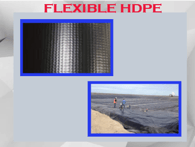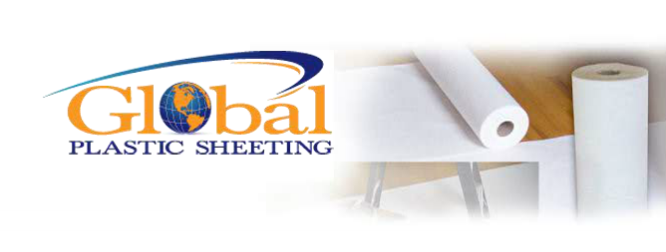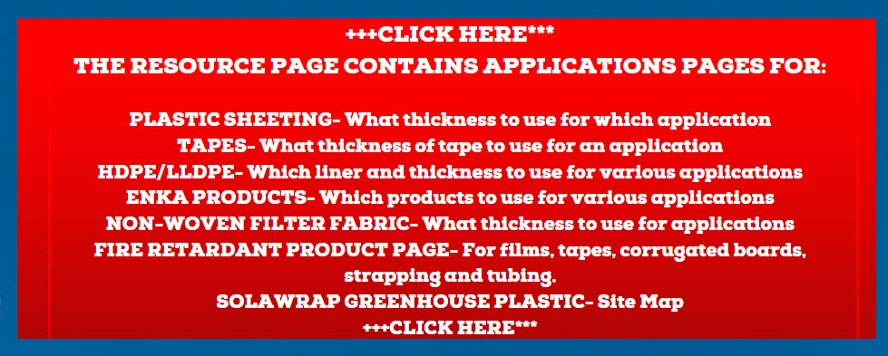Flexible HDPE: Exploring Key Characteristics, Applications, and Benefits
Flexible HDPE, short for high-density polyethylene, is a versatile and widely used thermoplastic polymer known for its excellent strength, flexibility, and chemical resistance. In this blog, we will explore the key characteristics of flexible HDPE, its various applications across industries, and the numerous benefits it offers. Let's dive into the world of flexible HDPE and uncover its unique properties.
Exploring HDPE's Flexibility, Chemical Resistance, and More
-
What is Flexible HDPE? Flexible HDPE is a type of plastic material derived from petroleum and produced through a polymerization process. It is categorized as a high-density polyethylene due to its high molecular weight and density. The flexible variant of HDPE is manufactured to possess enhanced flexibility, making it suitable for applications that require bendability and resilience.
-
Properties of Flexible HDPE:
- Flexibility: Flexible HDPE exhibits excellent flexibility and can be easily bent or shaped without losing its structural integrity.
- Chemical Resistance: It is highly resistant to chemicals, acids, and alkalis, making it suitable for applications involving exposure to corrosive substances.
- Impact Resistance: The material has exceptional impact resistance, making it durable and resistant to cracking or breaking under pressure.
- Moisture Resistance: Flexible HDPE is highly resistant to moisture, making it an excellent choice for applications exposed to humid or wet environments.
- Lightweight: It is a lightweight material, allowing for ease of transportation and installation.
- Recyclability: HDPE is recyclable and can be reused to create new products, making it an environmentally friendly option.
-
Applications of Flexible HDPE:
- Packaging: Flexible HDPE is commonly used in packaging applications such as plastic bags, pouches, and films due to its flexibility, strength, and moisture resistance.
- Agriculture: It is utilized in agricultural applications such as greenhouse films, irrigation pipes, and liners for ponds and reservoirs.
-
In agriculture, the thickness range of flexible HDPE can vary depending on the specific application and requirements. Here are some common thickness ranges for flexible HDPE used in agriculture and the reasons behind their usage:
-
Geomembranes and Pond Liners:
- Thickness Range: 0.5 mm (20 mil) to 2.0 mm (80 mil) or more.
- Reason: Geomembranes and pond liners are used to line agricultural ponds, reservoirs, irrigation canals, and other water containment structures. The thicker HDPE ensures better puncture resistance, durability, and long-term integrity, protecting against leakage and seepage.
-
Greenhouse Films:
- Thickness Range: 100 μm (4 mil) to 200 μm (8 mil) or more.
- Reason: Greenhouse films made of flexible HDPE are used to create a controlled environment for plant growth. The thinner films allow for light transmission while providing protection against UV radiation, pests, and adverse weather conditions. Thinner films are also cost-effective and easier to handle during installation.
- The exception is SolaWrap which is 17 mil thick....
-
Silage Covers:
- Thickness Range: 200 μm (8 mil) to 400 μm (16 mil) or more.
- Reason: Silage covers made of flexible HDPE are used to protect stored forage from air and moisture, preserving its quality. The thicker HDPE provides better strength, tear resistance, and durability to withstand the handling and weight of the silage.
-
Mulch Films:
- Thickness Range: 20 μm (0.8 mil) to 50 μm (2 mil) or more.
- Reason: Mulch films made of flexible HDPE are used to cover the soil in agricultural fields to enhance crop growth and control weeds. Thinner films allow for better heat transfer, moisture retention, and weed suppression, while also being cost-effective and easier to lay.
-
Irrigation Pipes:
- Thickness Range: Varies depending on pipe diameter, typically 1 mm (40 mil) to 3 mm (120 mil) or more.
- Reason: Flexible HDPE pipes are used for agricultural irrigation systems. The thickness of the pipes is chosen based on factors such as the operating pressure, soil conditions, and the required strength to withstand installation and long-term use.
-
-
- Construction: Flexible HDPE is used for geomembranes, underground cable protection, drainage pipes, and vapor barriers in construction projects.
- Transportation: It finds applications in automotive components, fuel tanks, and vehicle liners due to its chemical resistance and durability.
- Healthcare: Flexible HDPE is used in medical tubing, bottles, and containers due to its hygienic properties and resistance to chemicals.
- Consumer Goods: It is utilized in various consumer goods like toys, furniture, and household items due to its flexibility, strength, and recyclability.
-
Exploring the Versatility and Benefits of Flexible HDPE in Various Applications
- Flexibility and Versatility: The ability to bend and flex without compromising strength allows for a wide range of applications.
- Chemical Resistance: It can withstand exposure to chemicals, acids, and alkalis, ensuring product integrity in demanding environments.
- Durability: The material's high impact resistance and moisture resistance contribute to its long-lasting performance.
- Cost-Effectiveness: Flexible HDPE is a cost-effective solution due to its relatively low production and maintenance costs.
- Sustainability: HDPE is recyclable, reducing waste and promoting environmental sustainability.
- Easy Processing: The material can be easily extruded, molded, or welded, enabling efficient manufacturing processes.
Conclusion:
Flexible HDPE is a highly versatile and valuable material with a wide range of applications across industries. Its exceptional flexibility, chemical resistance, and durability make it a preferred choice for packaging, agriculture, construction, transportation, healthcare, and consumer goods. With its inherent benefits and eco-friendly nature, flexible HDPE continues to play a significant role in shaping various products and industries. Embracing the potential of this material opens doors to innovative solutions and a more sustainable future.
Visit our HDPE Page Here



